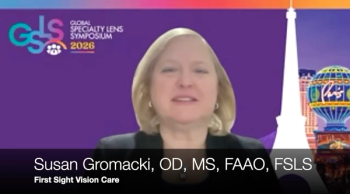
Canadian patient advocates file formal complaints, citing illegal fees charged at private clinics
The Ontario Health Coalition has gathered evidence such as proof of payment and patient reports from 50 patients for the formal complaint.
The Ontario Health Coalition and patients in Ontario announced during a news conference that they have filed formal complaints on behalf of patients charged user fees for health care in private clinics.1 The coalition has gathered evidence such as proof of payment and patient reports from 50 patients for the formal complaint, with the coalition receiving more than 200 complaints over the last year, according to a news release.
“These represent only a small fraction of the number of patients who are facing charges of hundreds to thousands of dollars when they go for cataract surgery in the private clinics,” the release stated.
“Without question, patients – many of whom are elderly and on fixed incomes – are being exploited. They are being charged hundreds or even thousands of dollars, particularly when they go to private clinics for cataract surgeries,” said Natalie Mehra, executive director of the Ontario Health Coalition, in the release. “Patients are using up their entire savings, their grocery money, and some have even had to go back to work long after retirement, in order to pay for their surgeries. This should never happen in Canada. We are demanding that the provincial government finally take action to stop the private clinics and that the federal government enforce the Canada Health Act in Ontario where the Ford government is violating it.”
Under the Canada Health Act, patients are intended to be protected against user charges and extra billing from medically needed surgeries, diagnostic tests, and physician services. “The coalition wants patients to know that everything they need for cataract surgery is covered under OHIP, including eye measurement tests, lenses that are unique to their eye, eye drops, appointments with physicians and follow-up,” the release stated.
The Canada Health Act is intended to protect patients against user charges and extra billing for medically needed surgeries, diagnostic tests, and physician services. Additionally, selling queue jumping is prohibited under the act. The coalition cited that most patients with urgent medical need are receiving cataract surgery within 3 and a half months and those without urgent medical need receiving surgery within 7 months.1
A handful of patients who helped file the formal complaint shared their stories during the news conference. Maureen Munro of London was diagnosed with macular degeneration and needed urgent eye surgery. She claimed that she was informed that she would need to pay almost $7000 or be placed on a 2-year wait list. For David Kauk of Kitchener-Waterloo, a $250 charge was required for eye measurement tests, then a $1100 charge per eye for surgery.1
Other complaints received by the coalition were detailed in 2 open letters that were sent to Sylvia Jones, Ontario’s minister of health, and Marjorie Michel, the federal health minister.1
“In context, we have tracked extra billing and user fees for decades. What we are seeing now is the worst we have ever seen,” Natalie Mehra wrote on behalf of the coalition in the letter to Michel.2 “The cost of the user fees and extra billing has increased sharply. Elderly patients are now being charged up to $11,000 when they go in for cataract surgery. Some describe these charges as taking their entire savings, months’ worth of income, their grocery money. Others have had to return to work when they are more than 70 years old, in order to pay their bills for cataract surgery. This should never happen in Canada.”
“There have been problems before, as you know, but without exaggeration the frequency with which patients are being charged, the escalation of the costs, and the proliferation of medically unnecessary things that are being pushed on patients using coercive and manipulative tactics are beyond anything that has ever happened before,” Mehra wrote in the letter to Jones.3
References:
Patient advocates file formal complaints from 50 patients, call for urgent action to stop illegal fees in private clinics. News release. Globe Newswire. June 17, 2025. Accessed June 19, 2025.
https://www.globenewswire.com/news-release/2025/06/17/3101027/0/en/Patient-Advocates-File-Formal-Complaints-from-50-Patients-Call-for-Urgent-Action-to-Stop-Illegal-Fees-in-Private-Clinics.html Mehra N, Ontario Health Coalition. Letter to Marjorie Michel. June 16, 2025. Accessed June 19, 2025.
https://www.ontariohealthcoalition.ca/wp-content/uploads/open-letter-Federal-Minister-of-Health.pdf Mehra N, Ontario Health Coalition. Letter to Sylvia Jones. June 16, 2025. Accessed June 19, 2025.
https://www.ontariohealthcoalition.ca/wp-content/uploads/open-letter-to-Ontario-Minister-of-Health.pdf
Newsletter
Want more insights like this? Subscribe to Optometry Times and get clinical pearls and practice tips delivered straight to your inbox.















































